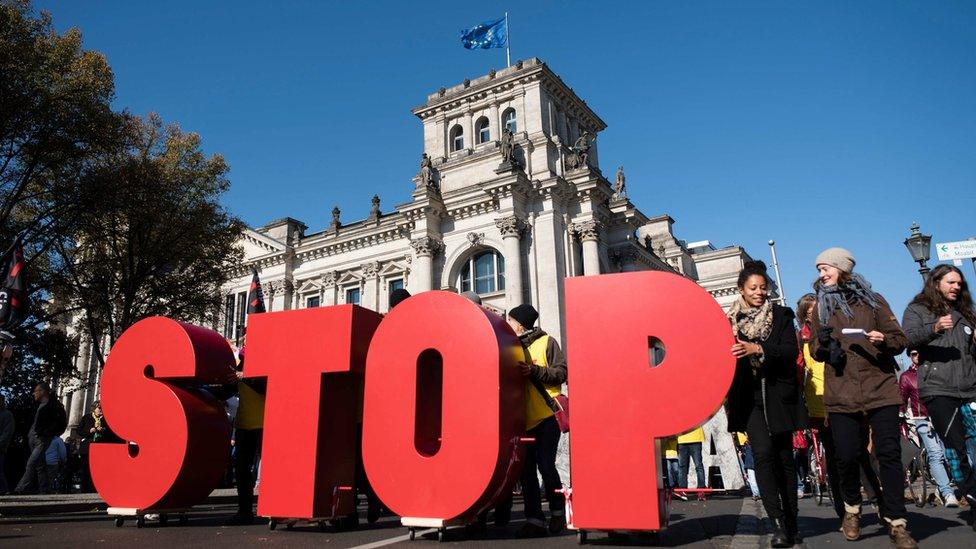Protests in Germany against transatlantic TTIP and Ceta trade deals
- Published
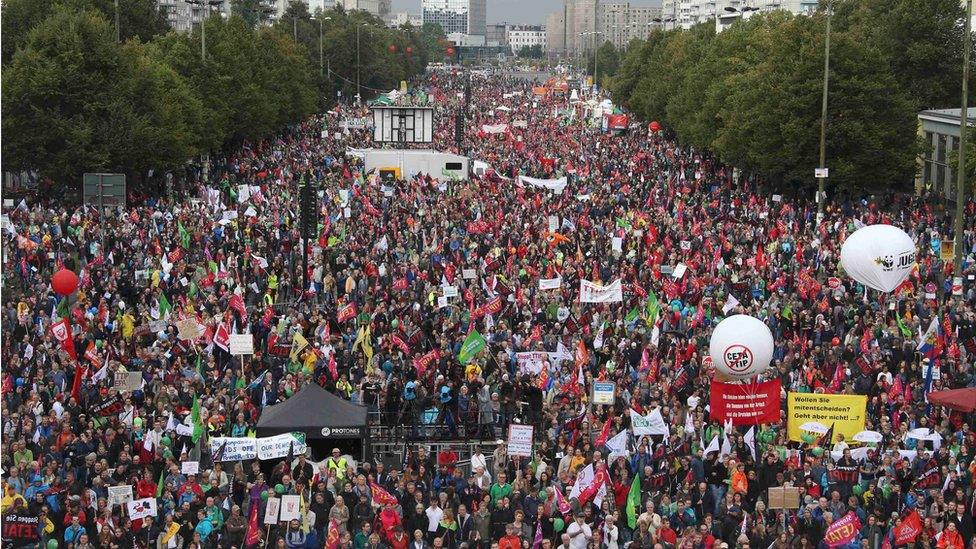
About 80,000 people turned out in Berlin alone
Tens of thousands of people have protested in cities across Germany against a proposed transatlantic trade deal between the EU and the US.
Protesters say the Transatlantic Trade and Investment Partnership (TTIP) will lower European standards on food and environmental protection, and could lead to outsourcing and job-losses.
Supporters of the deal say it promises to lower tariffs and promote growth.
The demonstrators were also protesting against a similar deal with Canada.
There were large crowds carrying flags and banners in seven German cities, including Berlin, Munich, Hamburg and Frankfurt, all braving cool and wet weather.
TTIP: The EU-US trade deal explained
TTIP: Are US-Europe trade talks tanking?
Would Canada's CETA deal with the EU be a good model for the UK?
"I want us to get rid of TTIP and for European social and environmental standards to be respected, maintained and improved," said Peter Clausing in Berlin.
Many demonstrators said the deal would lead to exploitation of people by businesses on both sides of the Atlantic.
"It will be the enterprises and banks that will have power over people worldwide", said Tobias Kuhn. "That is a no-go. People need to know that and we will protest until there's no chance of that happening anymore."
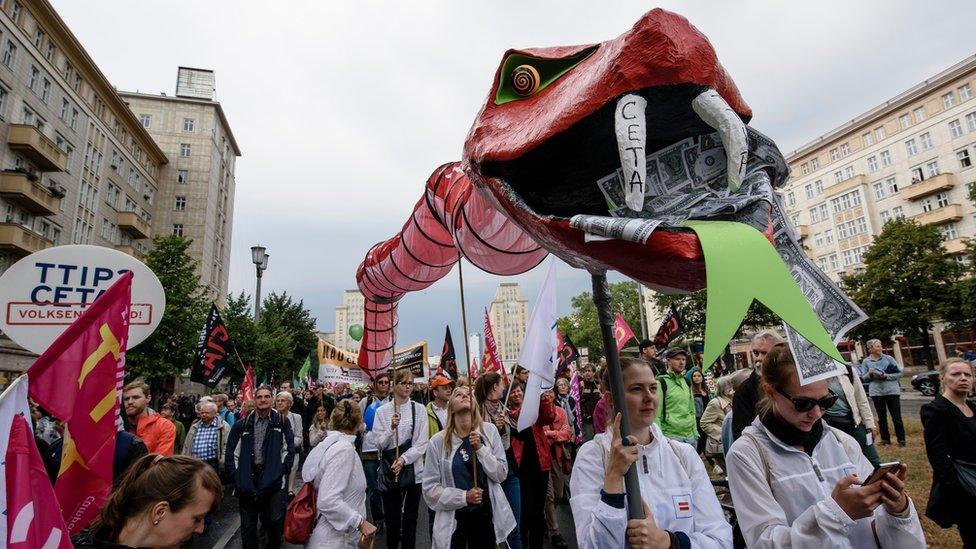
A snake swallowing dollar notes is how these demonstrators in Berlin see the deal
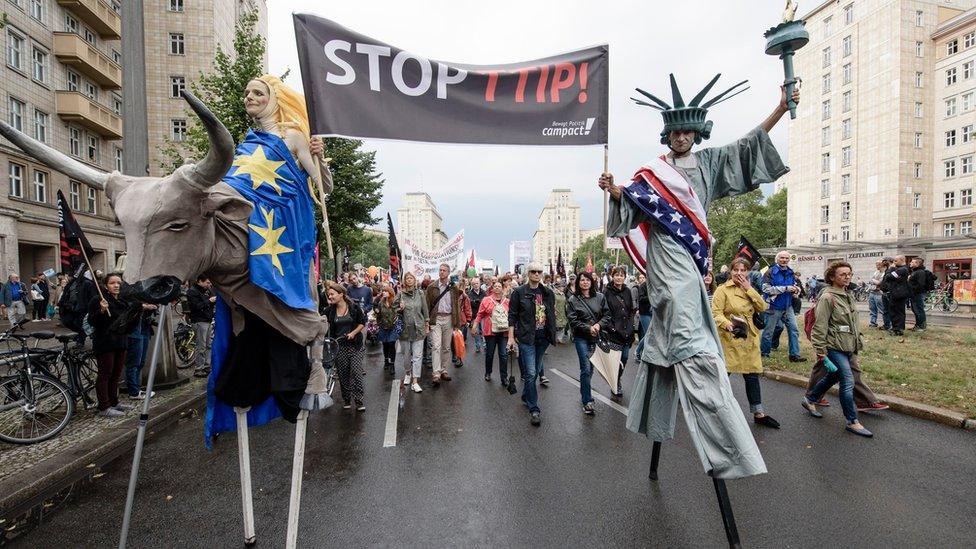
Figures representing Europe and America carry a banner in Berlin. Other slogans read "democracy instead of TTIP"
The EU and the US began negotiating the trade deal in 2013, aiming to create the world's biggest free trade market with 850 million consumers.
A new round of talks is due to start in October, and President Obama says he wants the deal to be concluded before he leaves office in January.
A similar but smaller trade deal between the EU and Canada, called the Comprehensive Economic Trade Agreement (Ceta), is due to be signed in October.
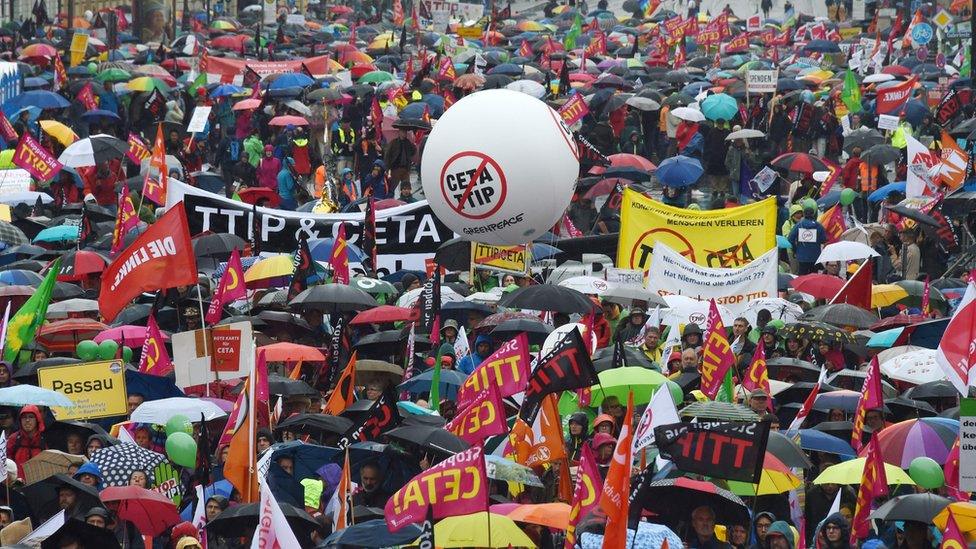
Many people braved the weather in the southern city of Munich

There appeared to be a certain apprehension of a deal with a possible future Trump presidency
The objective of the proposed TTIP deal is to remove or reduce barriers to commerce between the US and the EU. Negotiators are working towards eliminating most tariffs.
But the plans face opposition in Europe from citizens as well as some governments.
The French government has strongly opposed it, with President Francois Hollande casting doubt on when the deal would be reached.
German Chancellor Angela Merkel backs TTIP, but Economy Minister Sigmar Gabriel last month said the talks on TTIP had "de facto failed".
Mr Gabriel, who is the chairman of the CDU's junior coalition partner, the Social Democratic Party (SPD) does support the Ceta deal with Canada, which he sees as a counterweight to China's increasing economic power.
- Published11 October 2015
